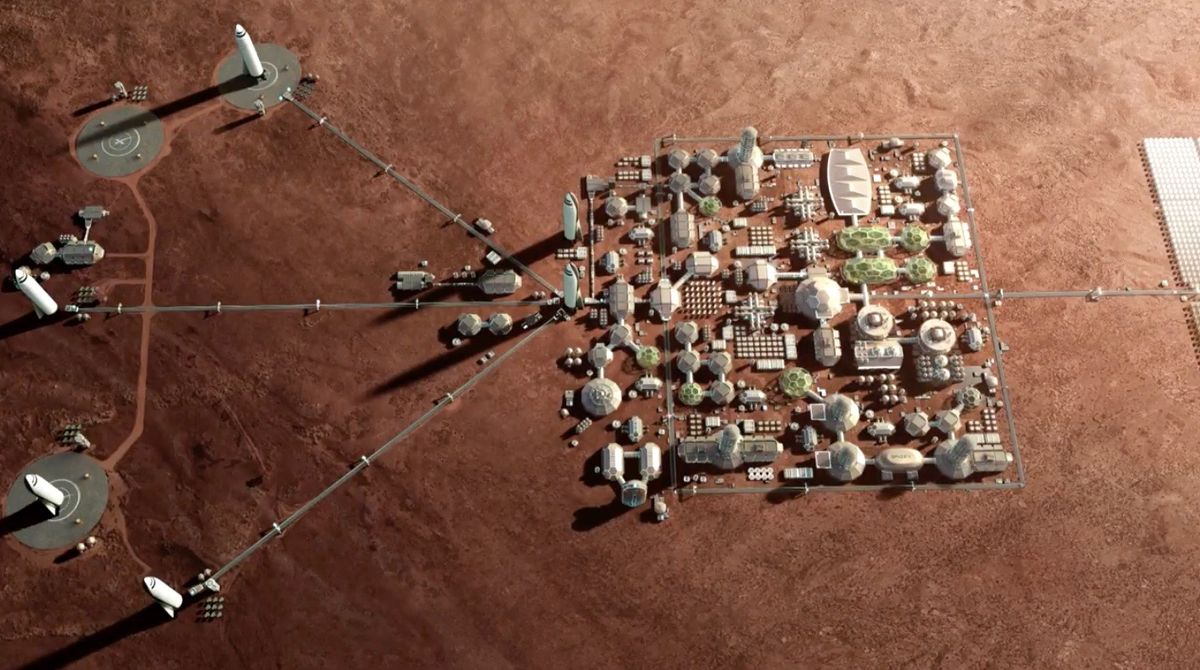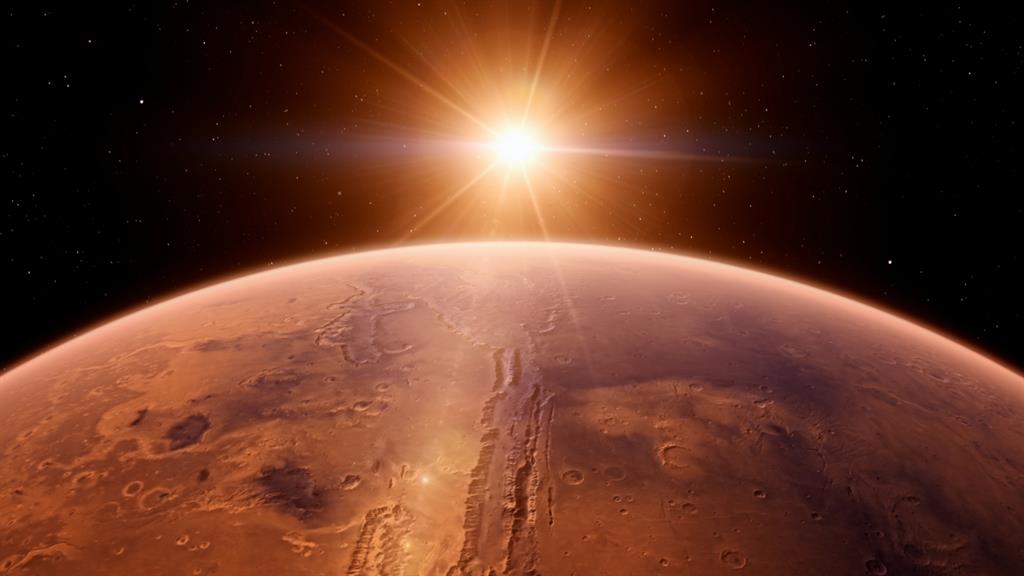
Colonizing Mars may require humanity to tweak its DNA
Genetic engineering may be a big part of our future on Mars.

If humanity is ever going to settle down on Mars, we may need to become a little less human.
Crewed missions to Mars, which NASA wants to start flying in the 2030s, will be tough on astronauts, exposing them to high radiation loads, bone-wasting microgravity and other hazards for several years at a time. But these pioneers should still be able to make it back to Earth in relatively good nick, agency officials have said.
Genetic engineering and other advanced technologies "may need to come into play if people want to live and work and thrive, and establish their family, and stay on Mars," Kennda Lynch, an astrobiologist and geomicrobiologist at the Lunar and Planetary Institute in Houston, said on May 12 during a webinar hosted by the New York Academy of Sciences called "Alienating Mars: Challenges of Space Colonization."
Genetic enhancement may not be restricted to the pages of sci-fi novels for much longer. For example, scientists have already inserted genes from tardigrades — tiny, adorable and famously tough animals that can survive the vacuum of space — into human cells in the laboratory. The engineered cells exhibited a greater resistance to radiation than their normal counterparts, said fellow webinar participant Christopher Mason, a geneticist at Weill Cornell Medicine, the medical school of Cornell University in New York City.
Tardigrades and "extremophile" microbes, such as the radiation-resistant bacterium Deinococcus radiodurans, "are a great, basically natural reservoir of amazing traits and talents in biology," added Mason, who has been studying the effects of long-term spaceflight on NASA astronaut Scott Kelly. (Kelly spent nearly a year aboard the International Space Station in 2015 and 2016.) "Maybe we use some of them."
Harnessing these traits might also someday allow astronauts to journey farther than Mars, out to some even more exotic and dangerous cosmic locales. For instance, a crewed journey to the Jupiter moon Europa, which harbors a huge ocean beneath its icy shell, is out of the question at the moment. In addition to being very cold, Europa lies in the heart of Jupiter's powerful radiation belts.




